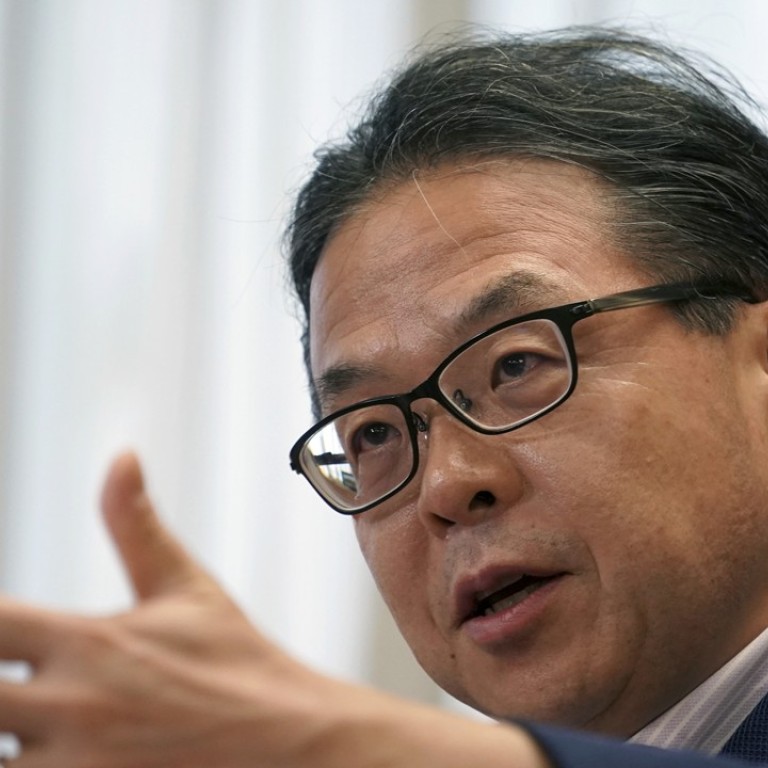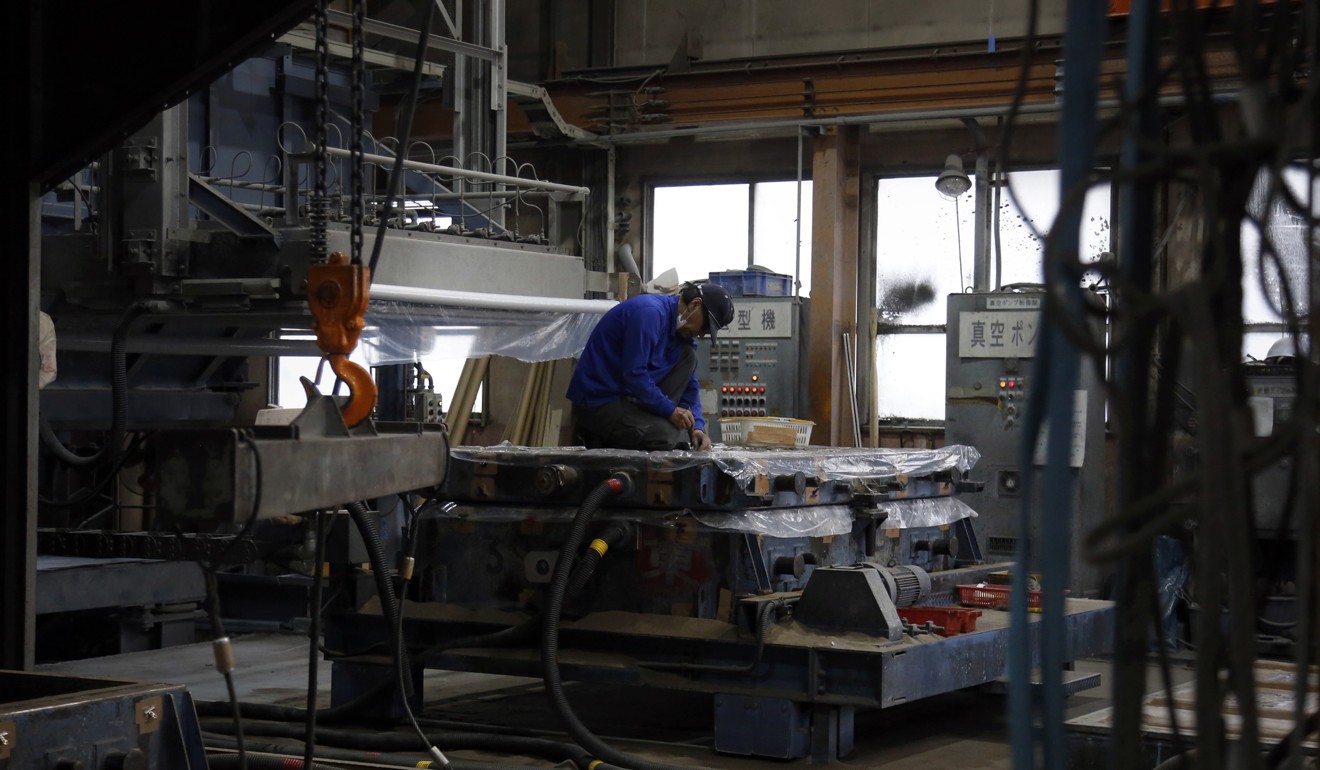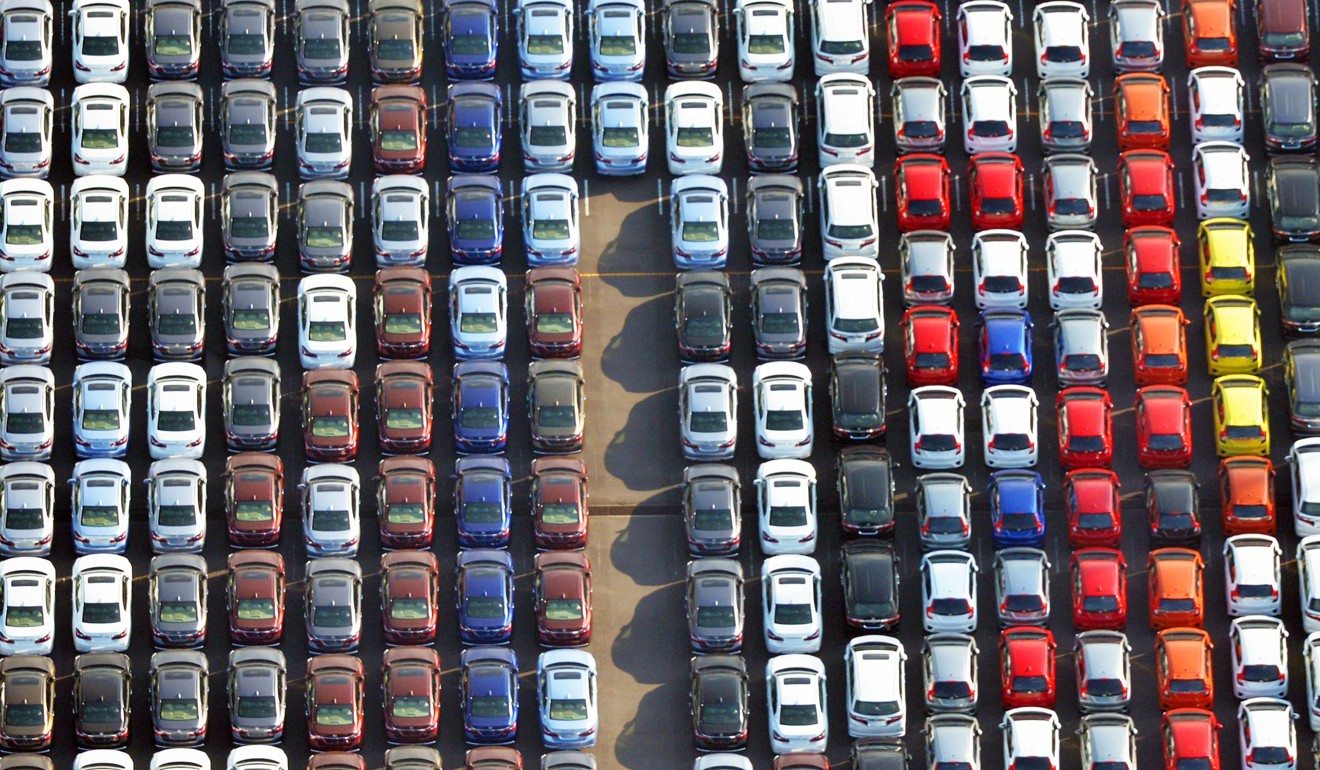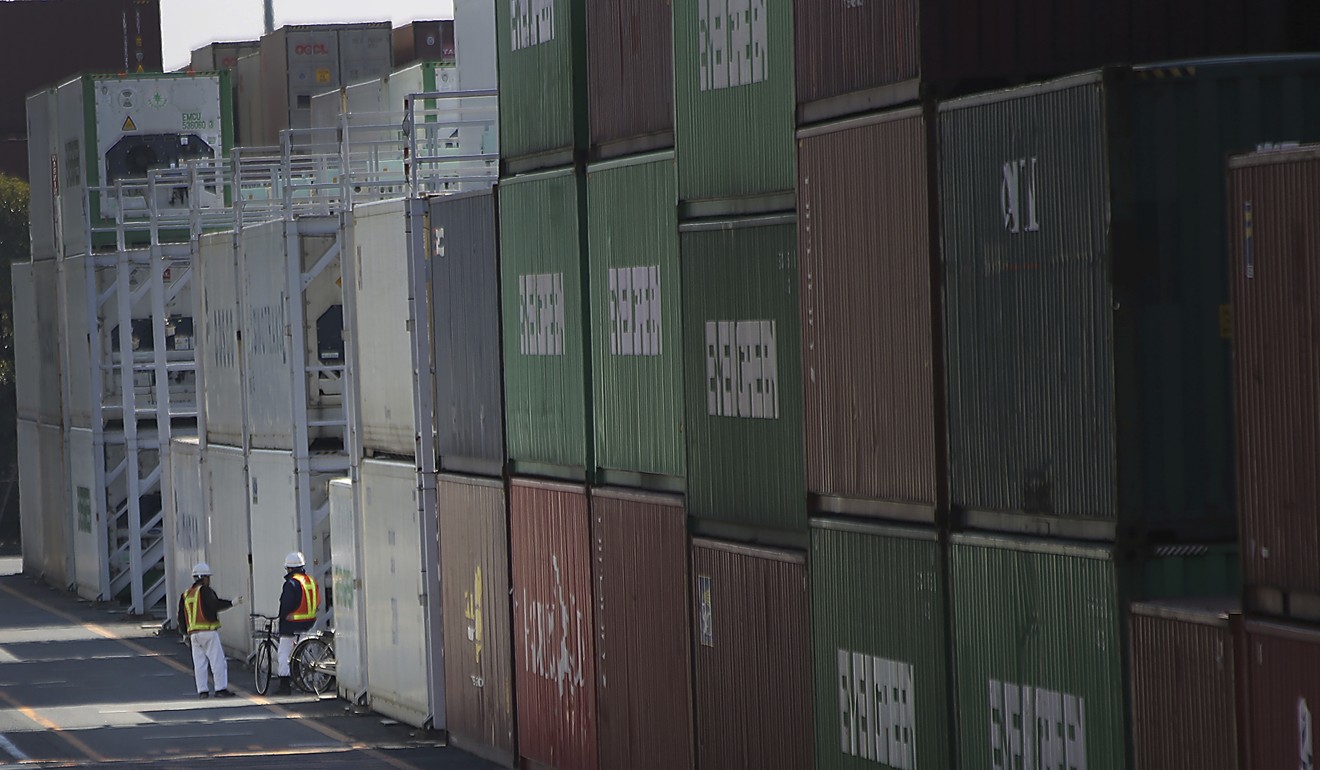
Japanese official: tariffs show Donald Trump does not understand free trade
Hiroshige Seko, the minister of economy, trade and industry, warns that Tokyo might take action if the US fulfils threats to levy a 25 per cent tariff on Japanese auto imports
Hiroshige Seko, the minister of economy, trade and industry, warned that Tokyo might take action if the US fulfils threats to levy a 25 per cent tariff on Japanese auto imports. He gave no details but did not rule out retaliatory tariffs.
Trump’s trade war on China: phoney or real, world will be the loser
“Japanese carmakers are a major contributor to the American economy,” Seko said at his ministry office in Tokyo. “If the Japanese auto industry is weakened, it will not be able to invest in the US.”

“This works as absolutely no plus for the world economy, and Japanese companies are shipping parts to China to finish them as products there that are exported to the US, and the effects are already being felt,” he said. “Ultimately, it will hurt the US and Chinese economies.”
Seko said he empathised with Trump’s “feelings” of worry over the ballooning US trade deficit. But he said Prime Minister Shinzo Abe and other Japanese officials have been patiently trying to persuade Trump that Japanese products do not pose a security threat to the US.
The annual US trade deficit with Japan totalled more than US$68 billion last year. The US deficit with China was nearly US$376 billion.
Forget US-China trade war tariffs, this is what really worries Asia
Trump should not blame Japan, Seko said, because the US deficit with Japan today reflects years of effort by Japan to create thousands of jobs in the US, many of them lucrative in the auto industry, and become a major investor in the US.
Seko said tariffs imposed on Japanese exports of steel and aluminium, which have already kicked in, are expected to have a minimal impact on Japan because its steel mills specialise in high-end products difficult to replace that have been exempted from the tariff hikes.
Auto tariffs are another matter, Seko said. The auto industry helps drive Japan’s economy, with exports of vehicles and parts to the US accounting for 1 per cent of its GDP.

Toyota Motor Corp. estimates the auto tariffs would add an average US$6,000 to the cost of each car exported to the US from Japan. At current levels, that amounts to US$4.2 billion a year.
American carmakers such as General Motors and Ford Motor are among companies protesting that the tariffs would harm the US industry.
In Trump’s trade war on China, the winner will be whoever can stand to lose the most
Seko said Japan has changed its ways since the height of the “Japan-bashing” days of the 1980s.
Japanese companies make 3.8 million cars annually in the United States, more than double the number of vehicles shipped there from Japan, according to the Japan Automobile Manufacturers Association.
“Things are totally different,” he said.
Seko said that during a recent trip to the US, which included Detroit, he met many people who agreed with his views.

Some trade experts note the set-up of global production has changed so much over the years that a Trump-style “zero sum” approach to looking at trade may be misleading: the Apple iPhone, for instance, might be made in China, but it’s an American product using parts from other nations, including Japan.
For that reason, a growing deficit might just reflect a booming US economy. Tariffs will merely raise prices for American consumers, Seko said.
The US resistance to imports has left Japan in the position of championing free trade.
“We have to keep trying to explain our message,” Seko said. “We have been working to open our markets to avoid such misunderstandings, especially in the bilateral trade with the US.”

